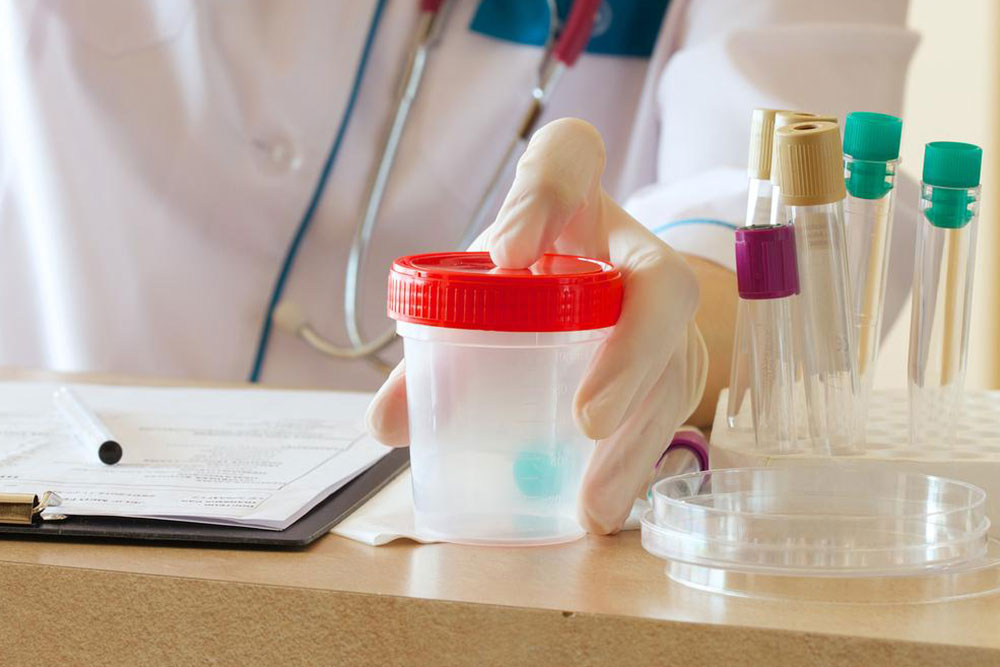Comprehensive Dietary Strategies for Effective Kidney Disease Management
This comprehensive guide offers essential dietary tips for managing kidney disease, emphasizing foods to limit such as sodium and phosphorus, and highlighting beneficial options like apples and egg whites. Proper nutrition tailored to CKD can slow progression, reduce symptoms, and enhance well-being. Consulting healthcare professionals ensures personalized and effective dietary management, supporting long-term kidney health and overall quality of life.

Essential Do's and Don'ts for a Kidney-Optimized Diet
Chronic kidney disease (CKD) is a progressive condition that hampers the kidneys' ability to efficiently filter waste and excess fluids from the bloodstream. This impairment can lead to a buildup of toxins and may cause complications such as high blood pressure, bone disease, and cardiovascular problems. While medical treatment and medications play crucial roles, dietary management stands out as a fundamental aspect of controlling the disease and slowing its progression. Adopting a well-planned kidney-friendly diet can significantly improve the quality of life for individuals with CKD and aid in maintaining optimal kidney function for as long as possible.
Understanding and implementing proper nutritional guidelines is vital, whether you have early-stage CKD, are on dialysis, or have received a kidney transplant. Working with healthcare professionals, such as nephrologists and registered dietitians, can help tailor a dietary plan suited to your specific needs. This personalized approach ensures that you get the right balance of nutrients without overburdening your compromised kidneys.
Managing a kidney-friendly diet involves understanding which foods to limit or avoid and which foods can support kidney health. A strategic approach to nutrition can prevent further damage, alleviate symptoms, and improve overall well-being.
Foods to Limit or Avoid:
Sodium: Excess salt intake is detrimental to kidney health. High sodium levels lead to increased blood pressure and fluid retention, placing additional strain on the kidneys. To reduce sodium intake, carefully read nutrition labels on processed foods, canned goods, and snacks. Avoid salted snacks like potato chips, pretzels, salted nuts, and popcorn. When shopping, opt for fresh meats and poultry instead of processed or cured options. Be cautious with salt substitutes, which may contain potassium—a mineral that individuals with CKD often need to restrict. Always consult your healthcare provider before making changes to salt intake or using alternative seasoning options.
Protein Consumption: While adequate protein intake is essential for health, excess dietary protein can burden weakened kidneys, accelerating damage. The key is to consume moderate amounts tailored to your condition, often guided by blood tests and medical advice. Lean meats, fish, eggs, dairy, nuts, and grains contain protein, but portion control and selection are critical. A kidney-friendly diet emphasizes high-quality proteins in controlled quantities.
Phosphorus: Elevated phosphorus levels can weaken bones and lead to calcium depletion. Foods rich in phosphorus—such as dairy products, nuts, seeds, beans, beer, carbonated drinks, and whole grains—should be monitored and limited based on your kidney function and blood phosphorus levels. Your healthcare team can help determine safe intake levels and suggest alternatives to manage phosphorus levels effectively.
Potassium: High potassium levels pose risks of irregular heartbeats and other cardiac issues. Common potassium-rich foods include bananas, potatoes, tomatoes, watermelon, beans, and dairy products like yogurt. Depending on your kidney function, you may need to restrict these foods or incorporate them in moderation. Regular blood tests help monitor potassium levels, and your healthcare provider can advise on safe consumption tailored to your condition.
Fluid Intake: Proper hydration is essential, but excessive fluid consumption can lead to swelling, high blood pressure, and lung issues, especially in advanced CKD or during dialysis. Fluid restrictions vary according to the stage of kidney disease and individual needs. Tracking fluid intake and following medical guidance ensures optimal hydration without overloading the kidneys.
Foods to Include:
Focusing on specific foods can provide essential nutrients while supporting kidney health. Incorporate a variety of fruits, vegetables, lean proteins, nuts, and cereals that are compatible with your dietary restrictions. Here are some examples:
Apples: A versatile fruit rich in fiber, antioxidants, and vitamin C. Apples can be eaten fresh, cooked, juiced, or incorporated into sauces. They are low in potassium and support overall health.
Strawberries: Packed with antioxidants and vitamin C, strawberries bolster immunity and reduce inflammation. Enjoy them fresh, blended into smoothies, or as toppings for cereals and desserts.
Cherries: Known for their anti-inflammatory properties and heart health benefits, cherries can be consumed fresh, processed into sauces, or added to beverages. Keep an eye on potassium content if in large quantities.
Egg Whites: An excellent source of high-quality protein with low phosphorus content. Egg whites are versatile and can be used in omelets, baking, or salads, supporting muscle maintenance without taxing the kidneys.
Cabbage: Rich in vitamins C and K, fiber, and antioxidants, cabbage low in potassium makes an ideal addition to salads, stir-fries, and side dishes, promoting digestion and immune health.
Ginger: A root that adds flavor and provides anti-inflammatory benefits. Rich in magnesium, manganese, and vitamin B6, ginger can be used fresh in teas and recipes to enhance taste and health.
Coriander: Use coriander seeds and leaves for seasoning, offering flavor without increasing kidney burden. It also has antioxidant properties beneficial for overall health.
Walnuts: A source of healthy fats, minerals, and vitamins, walnuts support cardiovascular health and can be added in moderation to meals, oatmeal, or snacks.
Implementing a kidney-conscious diet involves meticulous planning and adherence. Regular consultation with healthcare professionals ensures you remain on the right track, adjusting your diet as your condition evolves. Combining nutritional strategies with medical treatment can significantly improve the management of CKD, delay disease progression, and enhance your quality of life.





